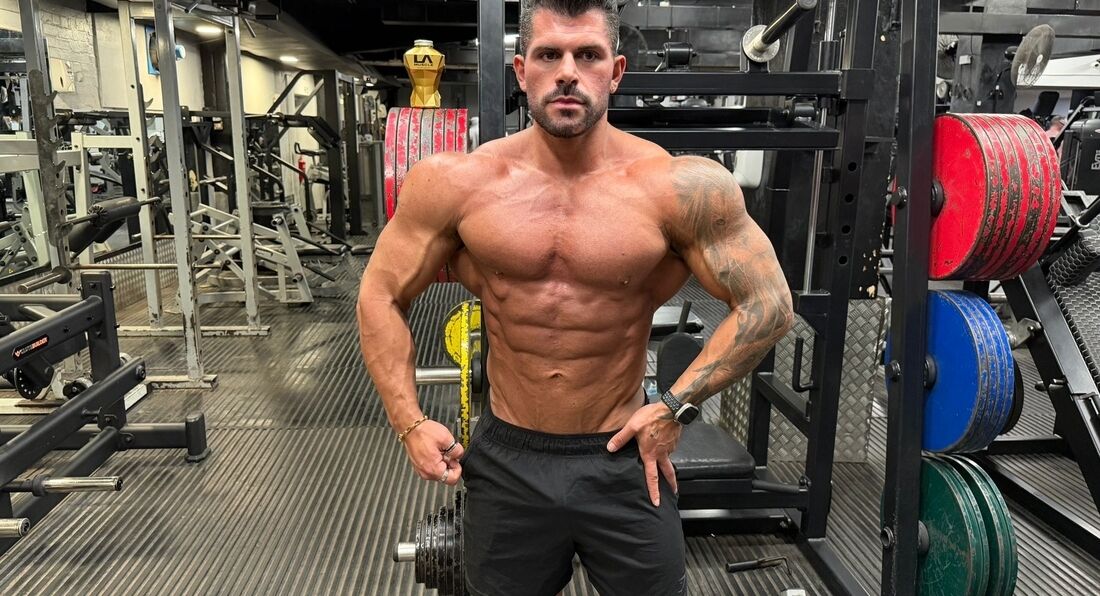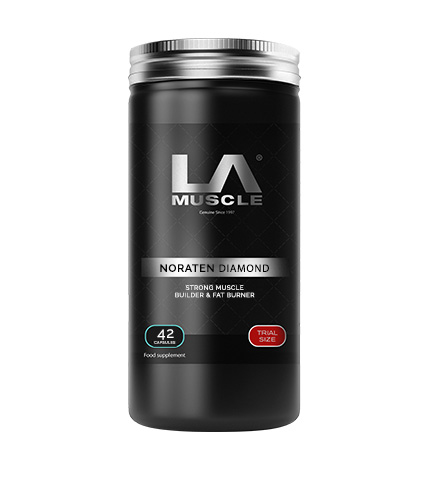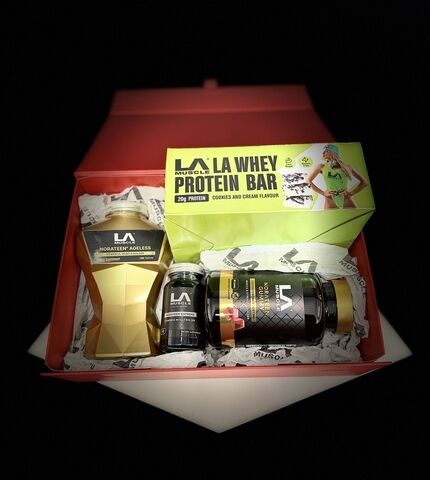Sunday, 18th January 2009
Are carbs muscle builders?
Glen Danbury examines the role of Carbohydrates in your quest for more muscle size.
By LA Muscle on 18.01.2009 11:23 am
By Glen Danbury Bsc (Hons), ANB Welsh 2003, 1st
Bodybuilding nutrition just like fashion seems to run in cyclic trends. Within the last decade carbohydrates have been frowned upon as a large segment of the bodybuilding community have favoured proteins and fats. At face value this has merit as protein is essential for growth and repair of muscles and fat is an essential nutrient in the production of those important muscle building hormones, whilst carbs are essentially non essential! Whatever way you look at it, this season carbs are out and protein and fats are most definitely in. Before all of you run for your protein powders and flax oils you may wish to read on to find out why carbohydrates could be the muscle building nutrient you are looking for.

Powerful effects?
As most of you know carbs are nutrients that we can obtain energy from (four kcals per gram), but what's more important is that the bodies stored carbs (glycogen) are a vital fuel for high intensity activities like weight training. This ability to provide energy during high intensity training sessions will have a two-fold effect upon your workout, but only if the body's glycogen stores are high enough. The first benefit of having a high glycogen store is that you will be able to maintain higher intensities towards the end of your workouts and therefore provide greater stimulus for growth. The reason that low glycogen levels causes early fatigue, even though you have nearly unlimited potential for energy from fat is related to three factors. Firstly fat is a much slower energy source than carbohydrate metabolism, secondly Carbs act as a primer for fat metabolism (due to the old adage 'fat burns in a carbohydrate flame' which relates to the krebs cycle and insufficient levels of oxaloacetate) and Lastly the role of glucose and the central nervous system. Since the brain uses blood glucose as a fuel nearly exclusively, low glucose levels will cause central fatigue (in other words the brain can not send as many signals to the muscles).
The second benefit of having higher glycogen levels is that you will recover between workouts faster, meaning you will be able to train harder and more often! It has been reasoned for a while that recovery between workouts is not just about the healing and addition of muscle, but also about refuelling and it has been shown in numerous studies that higher carb diets refuel glycogen levels better than low carb diets. So far we have seen that adequate carb intake can allow you to train harder and more often. Yet there is more!

The Pump
Storing carbs in the muscle will also draw in water to the muscle to be stored as intracellular fluid. This increase in intracellular fluid will make your muscles feel harder as well as increasing the pump when in the gym. The benefits of increased intracellular fluids are not all cosmetic, as an increase in cellular hydration will also promote protein synthesis.
Taxi for Mr amino acid.
It has been known for a while that carbs cause a muscle hormone response - but only a few realise that this muscle hormone is responsible for helping to drive those vital amino acids into the muscle. Producing a high muscle hormone response causes several changes within the body such as glucogenosis (replacing glycogen stores) and increasing protein synthesis. What's also beneficial about muscle hormone after a workout is that it opposes catabolic reactions and over a long-term period (eighteen to twenty four hours) can promote growth through mitogenosis and cell replication. Considering this it would seem advisable to combine high glycemic carbs with your post workout protein shake to acquire the highest possible muscle hormone response (certain amino acids within the protein will also slightly aid the muscle hormone response).
Anticatabolic effects!
Having a high glycogen store going into a workout will provide more anticatabolic effects than just the ones muscle hormone provides. Higher glycogen stores will cause protein sparring effects, meaning that the protein you eat and your hard-earned muscles wont be catabolised for energy. During intense workouts glycogen levels fall and to meet the energy demand it will use your muscle's amino acid to fuel the activity. As glycogen levels fall BC Oxacid dehydrogenase levels rise, which is the enzyme that breaks down the branched chain amino acids within your muscles. So unless you want to use your muscles as energy it would be advisable to make sure you eat a carb rich diet during your bulking phases. The use of an isotonic drink will also aid in preventing high levels of BC Oxacid dehydrogenase. The rise in BC Oxacid dehydrogenase may also play a part in causing fatigue. BC oxacid dehydrogenase will take up the circulating branched chain amino acids, which in turn allows higher levels of tryptophan in the brain (branched chain amino acids oppose tryptophan through competitive inhibition). These higher levels of tryptophan then go onto convert into 5HT (serotonin), which during exercise may cause central fatigue and therefore decrease your work capacity.
How much, What type and when?
If you want to make significant gains in lean mass and you're training hard and frequently (and you should at least be training hard), you will need to eat a diet that is reasonably high in carbs. Most studies show that hard training individuals will need to between six to ten grams of carbs per day per kilogram of bodyweight (i.e. if you weigh 100kg then you will need 600 to 1000 grams of carbs, which equates to 2400 to 4000kcals a day from carbs). The majority of your carbs should be coming from low glycemic sources (fruits, vegetables, oats and wholemeal breads and pastas etc), except for your post workout drink which should be of high glycemic nature (i.e. glucose, dextrose etc). If you find it hard to consume this many carbs a day a good maltodextrin powder supplement would be advisable. Quite a few individuals would shudder at the thought of eating that many carbs a day, because of the thought and fear of getting fat. If you are training hard you should not get fat, but if you are carb sensitive you should aim towards the lower end of the recommendations. Try it out for a period and I guarantee the improvements in the gym will banish any doubts whether carbs are muscle builders or not.
References
D. Haussinger 1996. The role of cellular hydration in the regulation of cell function. Biochem. J. 313: 697-710
Groff and Gropper 2000. Advanced nutrition and human metabolism 3rd edition. Wadsworth Thompson Learning.
Luc Van Loon, wim HM Saris, Margreit Kruijshoop and Anton JM Wagenmakers 2000, Maximising post exercise muscle glycogen synthesis: carbohydrate supplementation and the application of amino acid or hydrolysate mixtures. American journal of clinical nutrition; 72 106-111.
McArdale, Katch and Katch 1999. Sports and exercise nutrition. Lippincott Williams and Wilkins





























